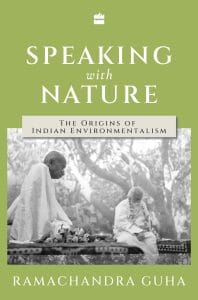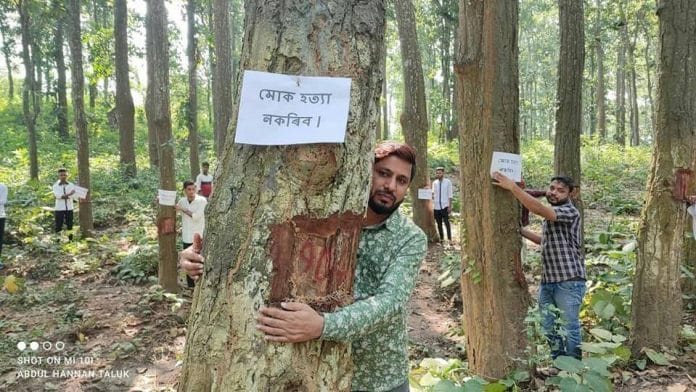The great British historian E.P. Thompson once remarked that ‘India is not an important country, but perhaps the most important country for the future of the world. Here is a country that merits no one’s condescension. All the convergent influences of the world run through this society: Hindu, Moslem, Christian, secular; Stalinist, liberal, Maoist, democratic socialist, Gandhian. There is not a thought that is being thought in the West or East which is not active in some Indian mind.
Some may cavil at E.P. Thompson’s assertion that India is (or ever was) the most ‘important’ country for the future of the world. But I want rather to focus on his other claim—namely, that there has been an astonishing diversity of intellectual opinion in India. This is a product of the country’s size, its cultural heterogeneity, and its daring (if admittedly imperfect) attempt to construct a democratic political system in a deeply hierarchical society. Indeed, among the countries of the so-called ‘Global South’, India is notable for the vigour, sophistication and self-confidence of its intellectual traditions. In this respect it stands out; to be contrasted not only with the smaller countries of Asia and Africa, but also with its even larger neighbour, China, where the scholarly traditions of the past have been brutally crushed by a totalitarian state.
This book explores a significant yet somewhat neglected strand of Indian intellectual life—that pertaining to the past, present and possible future of human relations with the natural world. By the canons of orthodox social science, countries like India are not supposed to have an environmental consciousness. They are, as it were, ‘too poor to be green’. As the MIT economist Lester Thurow famously (or notoriously) remarked in 1980: ‘If you look at the countries that are interested in environmentalism, or at the individuals who support environmentalism within each country, one is struck by the extent to which environmentalism is an interest of the upper middle class. Poor countries and poor individuals simply aren’t interested.’
Also read: ‘Jhola-yukt, plastic-mukt’ — How Banda’s DM went plastic-free, from govt meetings to markets
This magisterial dismissal of any possibility of poor countries being interested in environmentalism was, at least with regard to India, several years out of date. In the spring of 1973, a popular peasant movement in the Himalaya, known as Chipko, threatened to hug the hill forests to stop them from being felled by commercial loggers. Many of the participants were unlettered; however, the leaders, though themselves from peasant backgrounds, were informed and articulate about wider issues. They wrote essays and tracts (usually in Hindi) tracing the direct link between industrial forestry, soil erosion, landslides and floods. These showed that what at one level was an economic conflict—between the subsistence demands of peasants for fuel, fodder, etc., and the commercial motivations of paper and plywood companies—had deeper ecological implications as well.
Chipko was followed by a series of other grassroots initiatives around community access to forests, pasture and water. They likewise posited subsistence versus commerce, the village versus the city, the peasant versus the state, the subaltern versus the elite. Studying and reflecting on these conflicts, scholars argued that they showed the way to reconfiguring India’s development path. Given the country’s population densities and the fragility of tropical ecologies, India had erred in following the energyintensive, capital-intensive, resource-intensive model of economic development pioneered by the West. When the country got its freedom from British rule in 1947, it should have instead adopted a more bottom-up, community-oriented and environmentally prudent pattern of development. However, the argument further proceeded, it was not too late to make amends. The state and the citizen should both heed the lesson of Chipko and modify public policies and social behaviour accordingly.
The environmental debate in India was at its most vigorous in the decade of the 1980s. Scientists, social scientists, journalists and grassroots activists all contributed to it. The debate operated at many levels: philosophical, political, social, technological. It touched on the moral and cultural aspects of humanity’s relations with nature; on the changes required in the distribution of power to promote environmental sustainability; on the design of appropriate technologies that could simultaneously meet economic as well as ecological objectives. The debate embraced all resource sectors—forests, water, soil, transport, energy, biodiversity, pollution and industrial safety.
The post-Chipko environmental upsurge led to some institutional changes within India. New laws seeking to conserve forests, protect wildlife and control pollution were enacted. In 1980 the Government of India started a new Department of Environment, upgraded later into a full-fledged Ministry of Environment and Forests. New centres of ecological research were set up in Indian universities. Terms such as ‘ecological history’, ‘environmental sociology’ and ‘ecological economics’ began entering the teaching curriculum and research agendas of the academy. A new breed of ‘environmental journalists’ came into existence; their reports on forests, pollution, biodiversity and grassroots struggles featured in newspapers and magazines.
In those years, thinkers and activists in India played a profound role in shaping global conversations about humanity’s relationship with nature as well. Indian scholars posited the idea of ‘livelihood environmentalism’ in contrast to the ‘full-stomach environmentalism’ of the affluent world. Some of the most pungent criticisms of overconsumption in the West came from Indian writers. Scientists like Madhav Gadgil and A.K.N. Reddy, journalists like Anil Agarwal and Sunita Narain, and activists like Medha Patkar and Ashish Kothari acquired international reputations. Ideas originally developed in India were discussed and debated in other countries and continents.
 This excerpt from ‘Speaking With Nature’ by Ramachandra Guha has been published with permission from HarperCollins.
This excerpt from ‘Speaking With Nature’ by Ramachandra Guha has been published with permission from HarperCollins.






